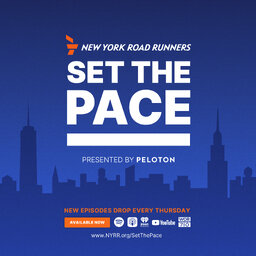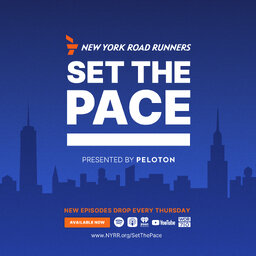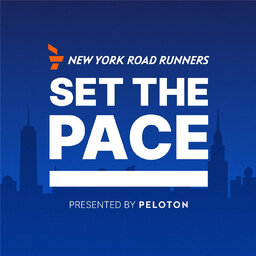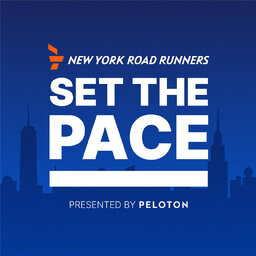From GTL to GT-Half-Marathon with Jersey Shore's Vinny Guadagnino
This week, Becs interviews Jersey Shore’s Vinny Guadagnino about his transition from reality TV star to long-distance runner. Vinny completed the United Airlines NYC Half this past Sunday and ran his first marathon last November at the TCS New York City Marathon, fundraising for NAMI (National Alliance on Mental Illness). Vinny talks about the joy of training in NYC and how running helps support his mental health. Tune in to hear why he loves running in the summer and about his favorite post-race meals. Also joining the show is NYRR member Marisa Cotrina. She fell in love with the sport nearly two decades ago and now has 11 marathons and 49 half marathons under her belt. And today we have a special Meb Minute with HSS. Meb welcomes HSS's Kate Baird to talk about bridging the gap between half-marathon recovery and full marathon prep.
Vinnie Guadagnino Joins Becs:(05:35)
Jersey Shore Lightning Round:(37:01)
NYRR Member Marisa Cotina: (45:58)
Meb Minute with HSS: (57:11)
FOLLOW NYRR: Instagram | Facebook | X | TikTok
SUPPORT: Support the Set the Pace podcast! If you enjoy the show, please subscribe and leave a rating and review on Apple Podcasts or Spotify.
DISCLAIMER
In 1 playlist(s)
Set the Pace
NYRR Set the Pace Presented by Peloton is the official podcast of New York Road Runners. Join hosts …Social links
Follow podcast
Recent clips

Live from Kenya with Marathon Champ Sharon Lokedi
22:51

Dr. Jordan Metzl on the Science of Running Motivation
56:52

What Every Runner Can Learn From Olympian Grant Fisher
1:03:15
 Set the Pace
Set the Pace